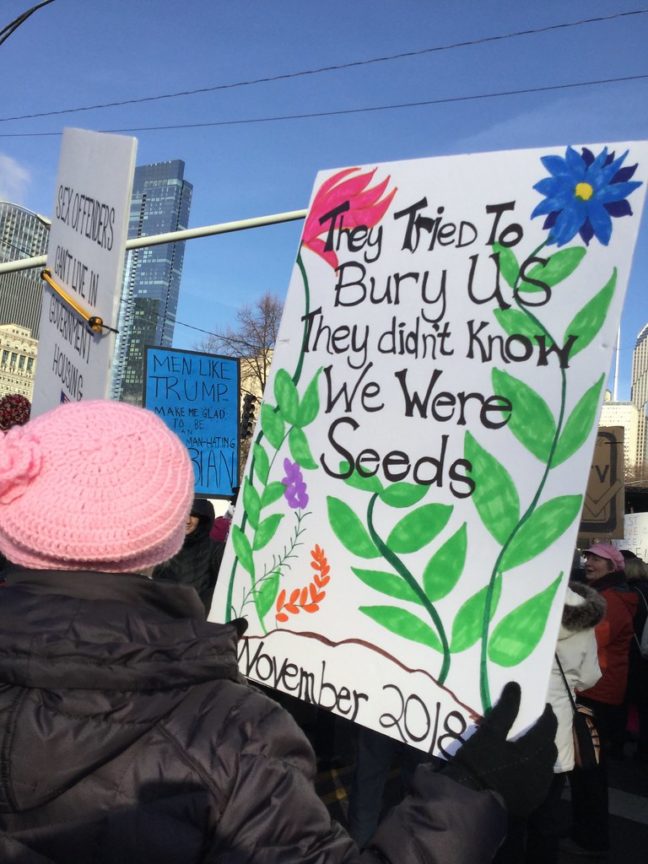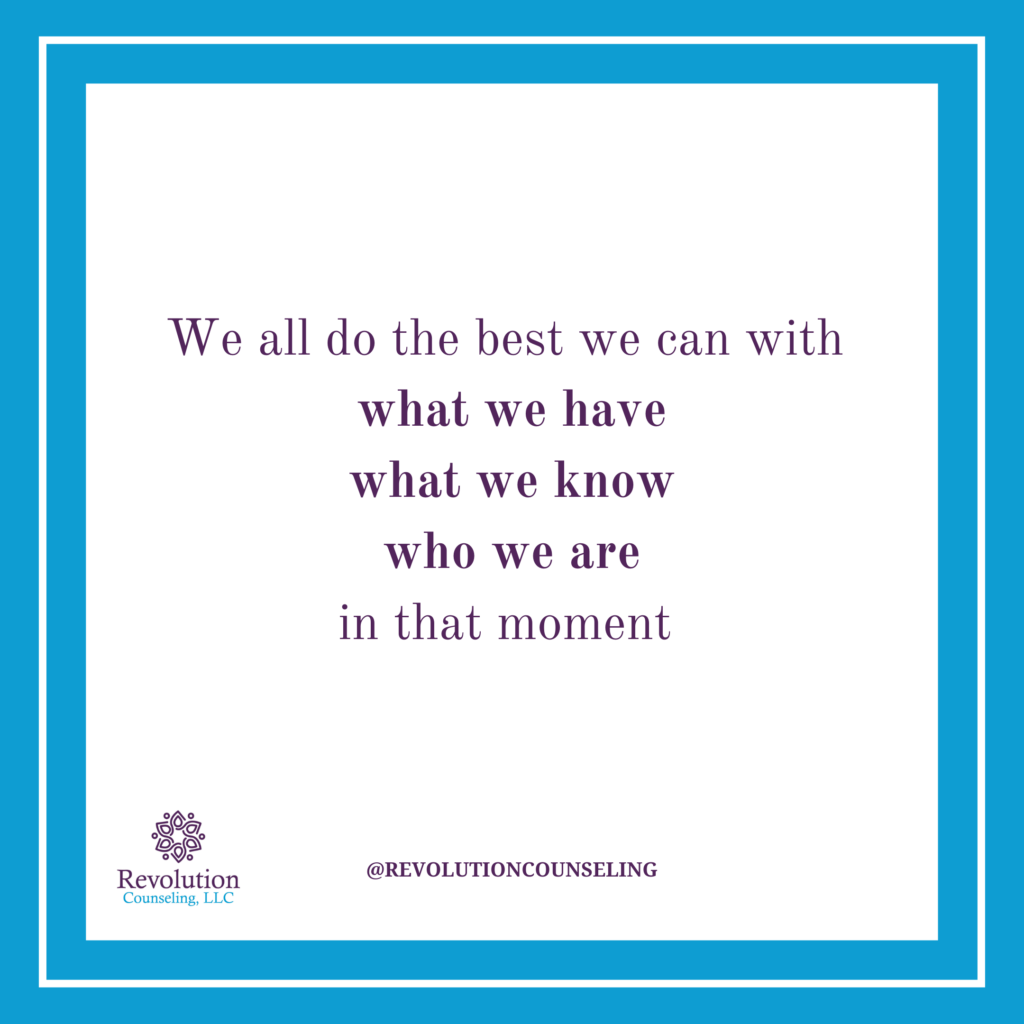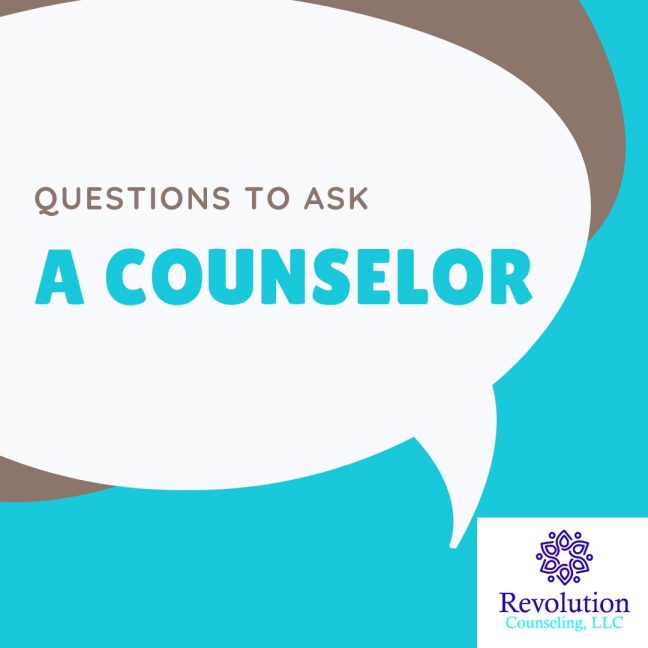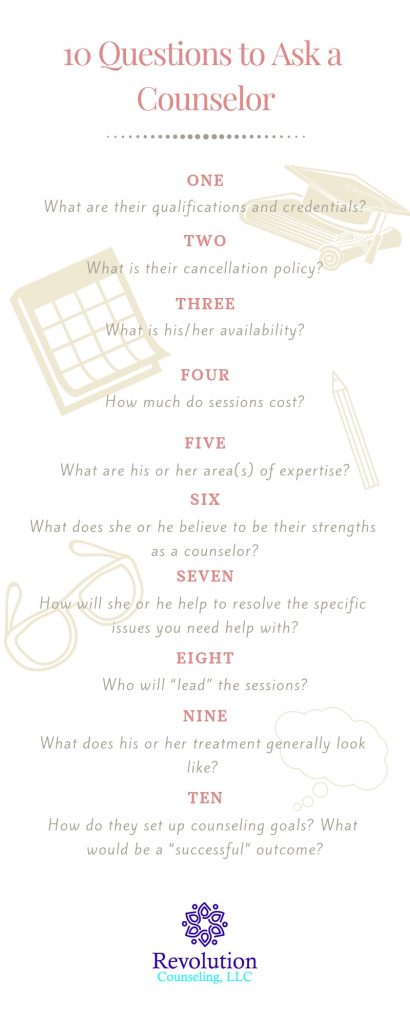During a transition period in my life, I once received a card from a colleague. We were both advancing to the next steps in our professional journeys. On top of the card read, “They tried to bury us, they didn’t know we were seeds.” I felt moved by the sentiment mostly because of how it spoke so knowingly from a place of shared turmoil, that despite the deep hole we found ourselves in, our story was not over. For the same reason, this phrase has meant a lot to Latin American communities who were protesting human rights abuses by authorities in Mexico and also along the US border.
Speak Your Truth
I am reminded of an image I once came across while walking at a park in the state of Oregon. I saw it under a bridge as I walked along the river, a graffiti writer had tagged the wall, “Speak Your Truth.” Underneath it was painted in red lettering: “Save your breath”. The first statement had been written in black and crossed out with a red line. I thought maybe the lines had been composed together for emotional impact, or perhaps there were two writers involved with competing convictions. Whichever the case I felt the tension between the two and the inner conflict felt familiar.
Along with this tension, I remember feeling angry and a surge of determined hope that I must not give up listening for buried stories within myself and within others. I want to believe for myself and for others that we are not alone and that there are still places to speak one’s truth. I am convinced that telling these stories is part of what is necessary to accelerate revolutionary change in our communities. I wanted to reach the despair of whoever wrote “Save your breath.” But I felt frustrated because I saw no pathway toward finding this person. Being a songwriter the only thing I could think to do is to make my message soar into the air like only music can. So, I wrote a song. I suppose a part of me wished it would somehow reach the ears of the writer sort of like an incantation that would act as a medicine for that person’s injury.
The Trauma of Oppressive Systems
Perhaps you have also suffered under longstanding oppression which had you wondering if you should save your breath. You feel silenced, ignored, or delegitimized. You need to hear that justice will prevail. Those of us who count ourselves, members of marginalized communities, we hunger for this message: “Speak your truth: I’m listening. It matters.”
The ancient Chinese philosopher, Lao Tzu, spoke so eloquently about how in nature softness often overcomes hardness. He famously pointed out, “Water is the softest thing, yet it can penetrate mountains and earth. This shows clearly the principle of softness overcoming hardness.” In The Activist’s Tao Te Ching: Ancient Advice for a Modern Revolution, William Martin writes about how inherent in the Way of Tao is not only its quietist elements which do not achieve change through a desire to control through force or violence. There is also the “cleansing force of a rushing river”, it’s active power or Yang which are found in the classic book of wisdom, the Tao Te Ching. For me the wisdom in Taoism harmonizes well with the phrase, “They tried to bury us, they didn’t know we were seeds.”
Racial Justice and Mindfulness
So where does this leave you? How might you be telling yourself, “Save your breath”? One of the often-untold impacts of racial trauma is how we internalize its devaluing messages. Rhonda Magee writes in her book, The Inner Work of Racial Justice: Healing Ourselves and Transforming Our Communities Through Mindfulness, how one of the less obvious ways that living in racialized society afflicts us is that we can so easily turn on ourselves and adopt the hardness of a mountain of oppression. In doing so, we smother any attempt in making space for our most vulnerable selves to breathe, grow, and heal. This is not to say that there is a substitute for social movements that are addressing the power dynamics that place communities of color at a disadvantage. Collective activism is necessary and has a proven historical track record for generating progress. But there is work to be done also on an internal level that deepens our awareness of how we minimize our freedom, connection to community resources, and sense of value in the world. It is this healing that I am speaking of. I invite you to participate in that journey by telling the rest of your story as you break upward thru the earth triumphantly saying, “What they didn’t know is….”





